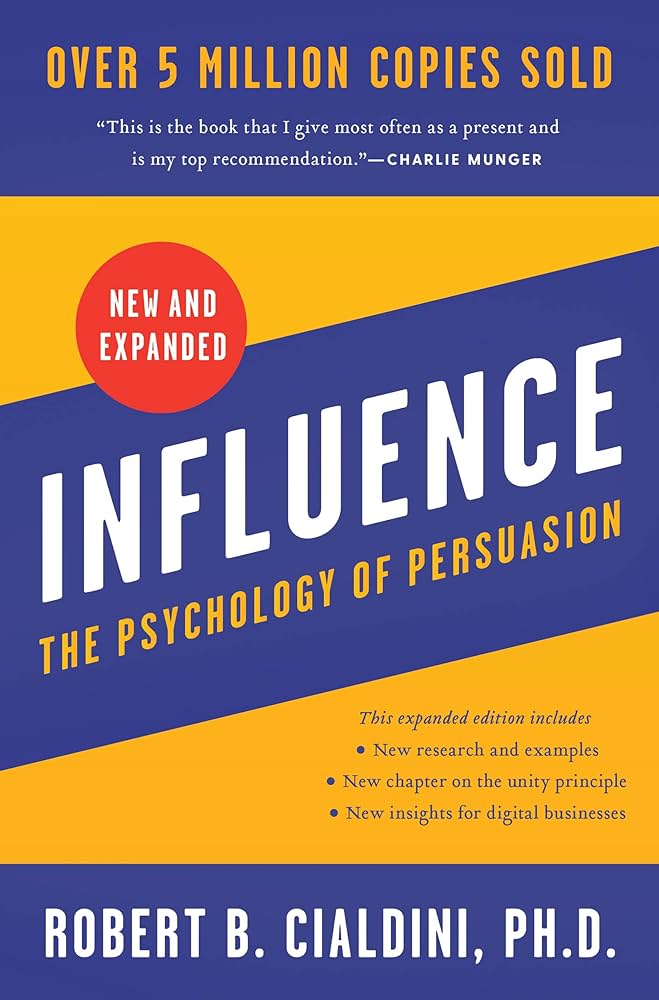“Influence: The Psychology of Persuasion” by Robert B. Cialdini is a renowned book that delves into the intricate ways in which people are influenced and persuaded in various situations. Cialdini, a social psychologist, presents six universal principles of persuasion that are employed by individuals, marketers, and even institutions to sway decisions and behaviors.
The six principles outlined in the book are:
1. **Reciprocity**: This principle suggests that when someone does something for us, we feel obliged to reciprocate. It’s the basis for the concept of giving before expecting to receive.
2. **Commitment and Consistency**: People have a natural inclination to act consistently with their previous commitments. Once individuals make a choice or take a stand, they are likely to stick with it.
3. **Social Proof**: People tend to follow the actions of others in uncertain situations. This principle highlights the power of testimonials, reviews, and social validation.
4. **Authority**: People are more likely to comply with requests or follow the lead of someone perceived as an authority figure. This principle explains why titles, uniforms, and expertise influence decisions.
5. **Liking**: We are more likely to say yes to people we like. Factors such as similarity, compliments, and cooperation can foster liking and enhance persuasion.
6. **Scarcity**: The principle of scarcity emphasizes that people desire things more when they are perceived as limited or scarce. It’s a driving force behind marketing strategies such as “limited-time offers” or “limited stock.”
Cialdini uses a blend of real-life examples, psychological research, and anecdotes to illustrate how these principles are applied in everyday situations. He discusses their ethical implications, their power to influence decisions, and how individuals can become more aware of and resistant to these tactics.
Overall, “Influence: The Psychology of Persuasion” is a thought-provoking book that sheds light on the underlying psychological mechanisms behind why people say “yes” and how understanding these principles can equip individuals to make more informed decisions and better resist unwarranted influence.




